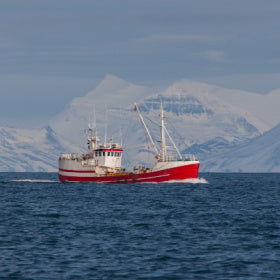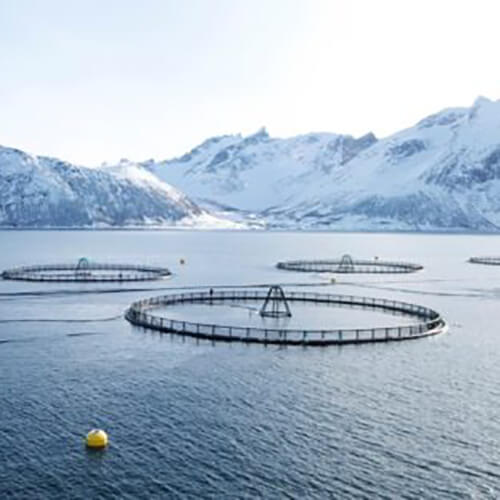Your Cart is Empty
FREE SHIPPING ON ALL ORDERS OVER $125!
FREE SHIPPING ON ALL ORDERS OVER $125!
FREE SHIPPING ON ALL ORDERS OVER $125!
As if you needed another reason to enjoy the taste of a fresh seafood dish, research has shown that seafood is the most carbon-efficient source of protein on the planet. Seafood requires no land or additional water resources to harvest and even has a lower impact on wildlife compared to land-based proteins. Moral of the story: Eat Seafood to reduce your carbon foorprint. Below, we discuss why seafood is the most sustainable protein choice on earth.
Of course, food production of any kind is going to have an impact on the environment. However, with seafood, the carbon footprint is significantly lower than for other protein sources that involve agriculture and livestock. For example, it is currently estimated that agriculture causes about one-third of the planet’s greenhouse gas emissions–even more than global electricity use and heat production.
Consequently, for the average meat-eater in the U.S. who consumes about 1.5 pounds of meat per week, replacing all meat with fish for a year would save the amount of emissions equivalent to 6,000 miles of driving.
Compared to protein sources harvested on land, seafood production produces much fewer greenhouse gas emissions and less freshwater pollution. This is especially true for fish that are wild-caught, given that they feed and develop on their own, and additional resources and emissions are not required to harvest them or provide their food sources. But even within seafood itself, the carbon impact depends on factors such as the species, catch method, and amount of time spent at sea.

| Protein | Carbon Footprint (kg CO2eq/kg protein) |
|---|---|
| Beef | 60 |
| Lamb | 24 |
| Cheese | 13.5 |
| Pork | 7.5 |
| Chicken | 6.9 |
| Turkey | 5.7 |
| Tuna | 4.1 |
| Salmon | 3.8 |
| Tilapia | 3.8 |
| Cod | 3.7 |
| Trout | 2.9 |
| Sardines | 2.9 |
| Catfish | 2.9 |
| Mussels | 2.0 |
| Oysters | 2.0 |
| Clams | 2.0 |
This plays an important role within the larger conversation around climate change and the human impact on our planet. With greater emissions come higher temperatures, rising sea levels, more extreme weather patterns, and other phenomena that have potentially catastrophic impacts to life on Earth.
By intentionally sourcing our food from sources that we know have lower greenhouse gas emissions and cause less harm to the planet, like Seafood, we can support a more sustainable future.
Throughout the industry, seafood companies are making it a point to ensure that their carbon footprint and emissions remain as low as possible, despite increasing demand for seafood and a growing global population. Various initiatives like carbon capture and intentional seaweed farming are ways that seafood production companies are aiming to reduce their carbon footprint even further and remain sustainable for generations to come.
Across the board, sustainable and eco-friendly food production is becoming more of a focus for many businesses and consumers, especially as the global population continues to grow and require greater food supply.
At the end of the day, opting for a diet with more seafood can be a great way to do your part to reduce your carbon footprint.
–
Bailey Schramm is a writer in partnership with silverware wholesaler, Silver Superstore.
Comments will be approved before showing up.



Sign up to receive the best seafood recipes, first access to new products, exclusive discounts and more!